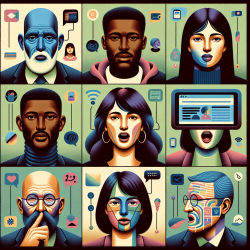Introduction
In a world where health care disparities persist, the role of digital interventions in bridging the gap is more crucial than ever. The research article "Indigeneity, Diversity, and Equity in Internet Interventions: Could ISRII Contribute to Making Health Care a Universal Human Right?" provides a compelling argument for how digital health solutions can address these inequities. This blog explores how practitioners can leverage these insights to improve their practice and contribute to a more equitable health care landscape.
The Power of Digital Interventions
Digital interventions, particularly those delivered via the Internet, offer a scalable solution to health care access. The research highlights the potential of creating digital apothecaries—online portals that provide evidence-based interventions to anyone in need. These interventions can be tailored to various languages and cultural contexts, ensuring that diverse populations receive appropriate care.
Addressing Indigeneity and Diversity
Indigeneity and diversity are central themes in the research. The authors emphasize the importance of recognizing and incorporating the unique cultural and social contexts of indigenous populations into health care interventions. By doing so, practitioners can ensure that these groups receive equitable care and that their health outcomes improve.
Equity in Health Care Access
Equity in health care is not just about providing access but also ensuring that outcomes are equitable. The research suggests that digital interventions can help achieve this by offering scalable, evidence-based solutions that are accessible to all, regardless of socioeconomic status. Practitioners can play a vital role by advocating for and implementing these interventions in their practice.
Implementing Research Outcomes
Practitioners looking to improve their skills and contribute to health equity can take several steps based on the research findings:
- Advocate for the inclusion of digital interventions in health care settings, particularly those that address the needs of diverse and indigenous populations.
- Participate in further research to evaluate the effectiveness of these interventions across different cultural contexts.
- Engage with communities to understand their unique health care needs and tailor interventions accordingly.
Conclusion
The potential for digital interventions to transform health care access and equity is immense. By embracing these solutions, practitioners can help make health care a universal human right, as envisioned by the United Nations. To delve deeper into the research and explore how you can contribute to this goal, read the original research paper: Indigeneity, diversity, and equity in Internet interventions: Could ISRII contribute to making health care a universal human right?










